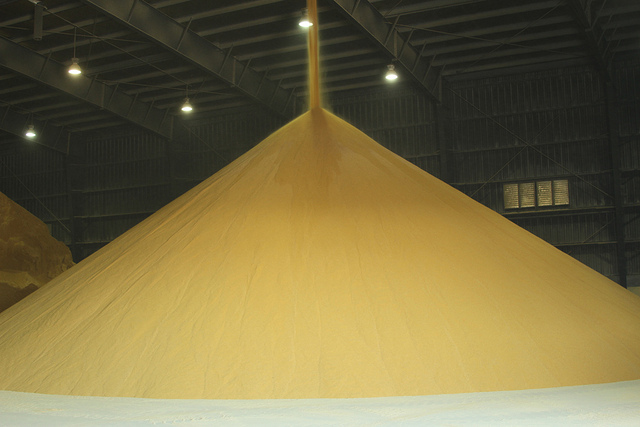Biofuel Waste Can Power Fuel Cells
 An efficient and low-cost technique to generate electricity has been developed by researchers at the University of Surrey, U.K. According to the researchers, a by-product obtained during the manufacture of biofuels can be used to power microbial fuel cells. The latest study may help design self-powered tools. The work was presented at the Autumn Conference of Society for General Microbiology.
An efficient and low-cost technique to generate electricity has been developed by researchers at the University of Surrey, U.K. According to the researchers, a by-product obtained during the manufacture of biofuels can be used to power microbial fuel cells. The latest study may help design self-powered tools. The work was presented at the Autumn Conference of Society for General Microbiology.
A waste product called Distillers Dried Grain with Solubles (DDGS) is obtained during bioethanol production. This by-product is generally used as animal feed. For their study, the scientists combined this by-product with bacteria-immunized sludge collected from a waste water treatment plant. The resultant product was then used in a microbial fuel cell, which was designed in such a way that oxygen supply was suspended for bacteria, forcing them to send electrons around a circuit to promote oxygen supply. Electricity can then be produced from the waste by harvesting this electron flow.
Microbial fuel cells offer a potential technology for renewable energy, as they are capable of converting organic waste products into electrical energy. According to Lisa Buddrus, who is conducting the study, products that are cost-effective are vital to commercialize the process. In the U.K., DDGS is one amongst the most abundant waste products and will become even more abundant as the biofuel industry expands.
Additionally, the researchers are planning to study electrogenic bacterial species that cultivate on DDGS. By observing the genetics of this microbial community, they are hoping to gain a better insight into the important genes and metabolic processes engaged in electron release and transfer.
Microbial fuel cells that employ DDGS are eco-friendly products. In fact, the waste that is left behind subsequent to electricity generation is less reactive with oxygen, which translates into less pollution.
Professor Mike Bushell, who is heading the research group, informed that numerous studies on microbial fuel cells focus on designing self-powered sensors for remote places so that critical information on pollution and weather can be obtained. Other applications for microbial fuel cells comprise waste water treatment to generate electricity. This exercise also cleans the water simultaneously.
 An efficient and low-cost technique to generate electricity has been developed by researchers at the University of Surrey, U.K. According to the researchers, a by-product obtained during the manufacture of biofuels can be used to power microbial fuel cells. The latest study may help design self-powered tools. The work was presented at the Autumn Conference of Society for General Microbiology.
An efficient and low-cost technique to generate electricity has been developed by researchers at the University of Surrey, U.K. According to the researchers, a by-product obtained during the manufacture of biofuels can be used to power microbial fuel cells. The latest study may help design self-powered tools. The work was presented at the Autumn Conference of Society for General Microbiology.